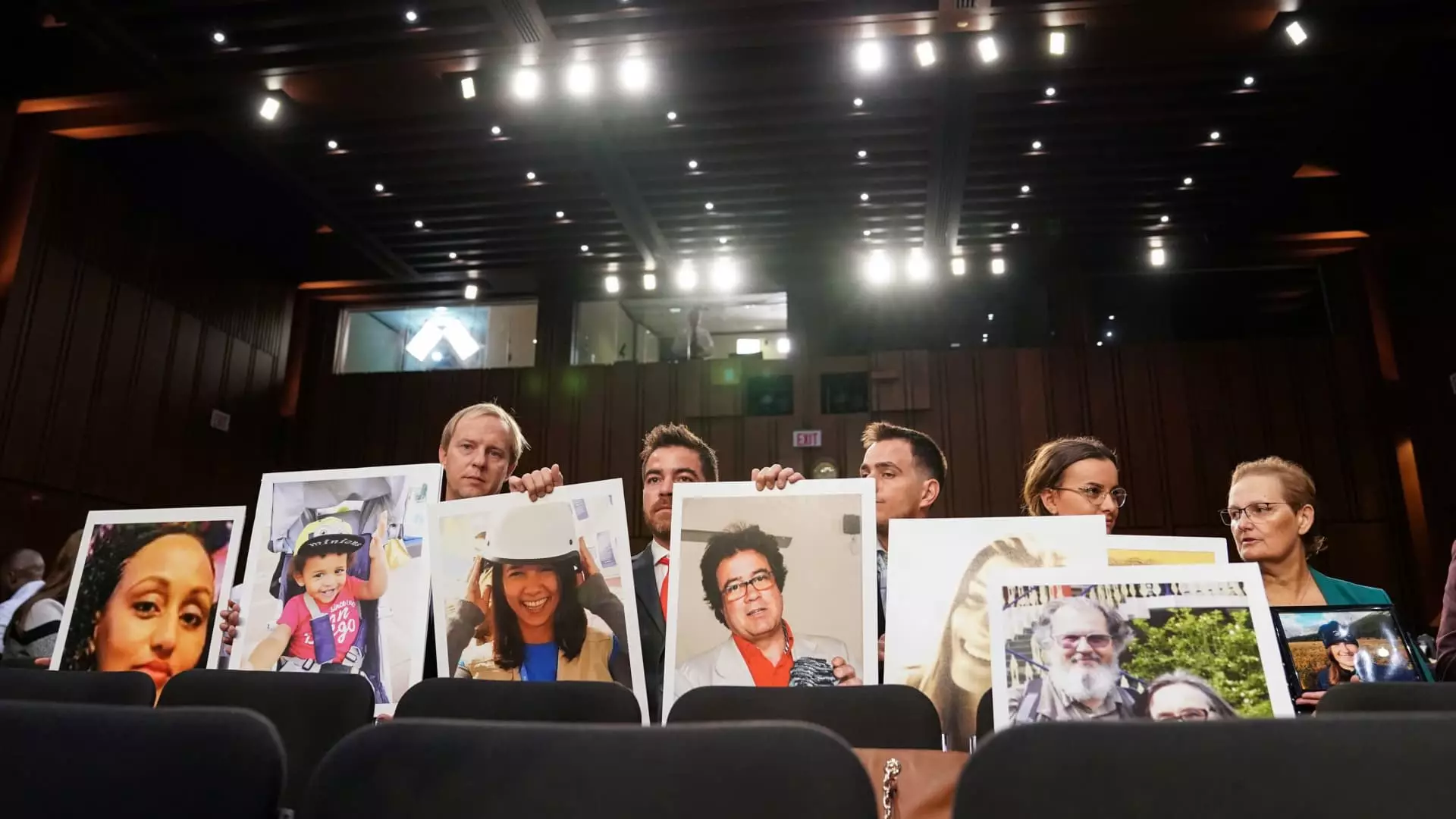In a deeply troubling recent announcement, the U.S. Justice Department revealed a deal with Boeing that seemingly absolves the aerospace giant of criminal responsibility for two devastating crashes involving its 737 Max planes. A staggering 346 lives were lost in these calamities, and yet here we are, watching as Boeing sidesteps justice thanks to a non-prosecution agreement. The implications of this deal are profound, sparking a debate over accountability in corporate America and the lengths to which organizations will go to shield themselves from the consequences of egregious failures that lead to loss of life.
This agreement effectively allows Boeing to avoid being labeled a felon, while crash victims’ families, who have waited years for accountability, are left feeling ignored. For those who lost loved ones in the Lion Air and Ethiopian Airlines tragedies, justice now appears to be a distant dream. This decision is not just about an outdated aircraft model; it’s about a company that chose to prioritize profit over human lives, leading to catastrophic results. The message being sent is clear: large corporations can operate with relative impunity as long as they wield economic power and influence.
The Economic and Ethical Quandary
Undeniably, Boeing serves as a vital player in the U.S. economy, acting as a major military contractor and leading exporter. However, when economic interests overshadow ethical obligation, we enter dangerous territory. The Justice Department touted the agreement as “fair and just,” but what is fair about dismissing the suffering of families whose loved ones perished due to corporate negligence? The decision underlines the massive weight that economic implications carry in judicial proceedings involving corporations, especially those with considerable lobbying power and political influence.
Critics, including lawyers representing the victims’ families, are rightly concerned that this agreement sets a perilous precedent for future corporate malpractice cases. When regulatory bodies demonstrate leniency towards conglomerates like Boeing, they risk cultivating an environment that tolerates unethical practices. The culture of deferment to big business is alarming, as it exemplifies a systemic failure to prioritize public safety over potential financial gain.
Public Sentiment: A Resounding Outcry
In the aftermath of this agreement, sentiment among the public and the families of victims has swelled into outright anger. While the Justice Department claims a majority of relatives support the deal, those opposing it have articulated a unified condemnation of a system that seems to overlook corporate wrongdoing. The sentiment that “this is corporate crime at its deadliest” resonates deeply, as individuals grappling with the loss of their loved ones march against what they perceive to be a corporate way out of accountability.
The families of crash victims are not just advocating for justice; they are pushing back against a narrative that paints Boeing’s actions in a forgiving light. In their eyes, accountability should mean something more comprehensive than financial restitution. They demand meaningful repercussions that would convey a clear message that safety and ethical conduct must command priority in corporate operations—especially when human lives hang in the balance.
A Sliding Scale of Justice
The terms of this non-prosecution agreement, which include over $1.1 billion in penalties and funds directed towards improving compliance and safety protocols, might superficially appear to demonstrate a level of accountability. However, this raises the question: is monetary compensation adequate when matched against the irreparable harm inflicted on grieving families? Many argue that criminal prosecution would serve as a more effective deterrent against future negligence, reinforcing that decisions driven by profit should not come at the expense of safety and human life.
It is particularly disconcerting that in a system designed to protect citizens, we have established a sliding scale of justice that favors financial settlements over genuine accountability for corporate misconduct. A corporate giant’s persistent ability to dodge the legal ramifications of its failures encapsulates a systemic flaw where economic clout overshadowed ethical integrity.
The Broader Implications for Corporate Governance
Boeing’s recent string of missteps and the governmental responses to them hold broader implications for corporate governance in the United States. When companies can circumvent rigorous judicial scrutiny by leveraging economic interests and political connections, we risk creating a culture of complacency toward corporate integrity. The federal government’s stance here serves as a cautionary tale, emphasizing the importance of reevaluating our approach to regulatory oversight and corporate accountability.
As protests erupt among those affected by the crashes, it becomes increasingly necessary to demand a reevaluation of existing legal frameworks governing corporate misconduct. People must hold both corporations and government entities accountable for ensuring that safety is never sacrificed on the altar of profit. In a society that demands ethical leadership, failures like this one should serve not as justifications for inaction but as catalysts for the necessary transformation of a misguided system.


Leave a Reply